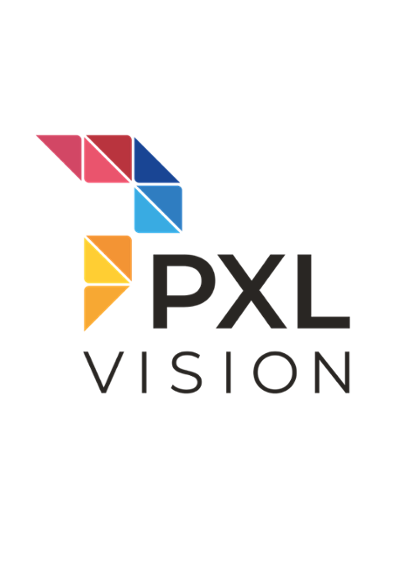2021 is the year of global connectivity for digital businesses. Internet connectivity will soon be available to most of Earth’s inhabitants. Global internet connectivity is now more than 50 percent – a threshold calculated to have been surpassed sometime in 2018. While the benefits of global connectivity are huge, there are some burgeoning issues that still require a solution.
A clear benefit of global connectivity is the flexibility to interact and transact with anyone from anywhere in the world. And while this is certainly a defining achievement for all humanity it adds the challenge of trust and the pressing need for assurances that you know who you are dealing with online.
This post will explore these above ideas in greater detail and also give a behind the scenes look at the digital identity verification industry in which we play a defining role. At PXL Vision, we are committed to solving the issue of online identity fraud and other security issues related to the “semi-anonymity” state of the internet, namely online identity verification as one of the big issues for 2021 and beyond.
Online global connectivity
While connecting the first half of humanity to the internet certainly had its obstacles, connecting the second half will be exponentially more difficult. The reason for this is that many of the still-to-be-connected live in the global south, where pre-existing infrastructure and also the economic ability to pay for new infrastructure are lacking.
However, from small, rural villages in the mountainous Andes to the vast landscapes of Africa and into the arid lands of the Middle East, there exists the overwhelming will by all globally-minded citizens to connect to the internet. And as the old adage goes: where there is a will, there is a way.
The race towards global internet connectivity is, in fact, playing out before our very eyes. Jeff Bezo’s Project Kuiper and Elon Musk’s Starlink are two such projects that aim to bring us much closer to global internet connectivity. A quote from Starlink’s website neatly summarizes the problem and the solution to connecting the rest of humankind to the internet:
“Starlink is ideally suited for areas of the globe where connectivity has typically been a challenge. Unbounded by traditional ground infrastructure, Starlink can deliver high-speed broadband internet to locations where access has been unreliable or completely unavailable.”
If you want to see the progress of this undertaking for yourself, check out James Darpinian’s satellite tracker website. Enter your coordinates and you can find the best time to view Starlink’s satellites and/or other satellites as they fly over you.
However, this article is not really about the race to connect the other half of the world (as interesting as that topic is) but more about how to introduce a dutiful amount of trust into your online interactions by knowing who you are interacting with.
Trust issues of online identity
The issue of identity on the internet is not new; at least not new when considering the timeline of the internet itself, which dates back to 1989 and the beginning of the world wide web and the quest for global connectivity.
Since the earliest days of the internet, the issue of identity and trust has revolved around the right to anonymity and the concept of privacy. Different schools of thought are equally vocal on this issue: some say anonymity ruined the internet, while others cry foul that the internet is no longer anonymous and wish for a return to the glory days of the past.
The first linked article above leads to an opinion piece in The Atlantic by Walter Isaacson, a former president of the world-renowned humanities’ think tank, the Aspen Institute. A quote there by Isaacson lays bare the motivations of the online identity verification industry:
“So the best approach, I think, would be to try to create a voluntary system, for those who want to use it, to have verified identification and authentication. People would not be forced to use such a system. If they wanted to communicate and surf anonymously, they could. But those of us who choose, at times, not to be anonymous and not to deal with people who are anonymous should have that right as well. That’s the way it works in the real world.”
Regardless of what side you personally take on the underlying debate of identity, anonymity and the internet, the best possible outcome lies somewhere in the middle. Sometimes, anonymity on the internet is nice to have but at other times real, provable identities are equally as important. At any rate, it is easy to stay at least borderline anonymous on the internet if you are careful. You can surf with the “private browsing” setting that most internet browsers have and furthermore only connect to the internet through a VPN. There are also a number of higher-level steps that you could take to browse the internet completely anonymously.
There are a number of “good” reasons to want to remain anonymous on the web; for instance, if you are an activist, journalist or whistleblower. There are also a number of “bad” reasons to want to remain anonymous, such as planning terrorist attacks, fraud and even trolling.
The online identity verification industry is interested in upholding the good reasons and preventing the bad reasons by building trust through identity, where it matters.
External contractors / remote work and fraud
One of the “bad” reasons for anonymity on the internet, which is of particular interest to our operations at PXL Vision, is workforce fraud. Workforce fraud is a complex and growing issue (especially in our current pandemic times), which sees fraudsters taking advantage of remote work opportunities and other contractual agreements by using fake identities.
Once connected, anyone can leverage the power of global connectivity and the internet to their benefit. Of foremost value is the ability to source talent from anywhere on Earth. Established companies and startups alike are both able to benefit from remotely outsourcing some of their operations or hiring external contractors in order to improve their business prospects.
Prior to the advent of the internet, work or business was often concluded face-to-face and involved varying levels of eye contact. The parties involved, whether employer/employee or business/external contractor could ascertain to within a reasonable doubt whether or not the other party was who they said they were.
However, in the 21st century, entire workforces can interact purely online and never actually meet in person. And while this offers numerous advantages, it has also invited some disadvantages such as workforce fraud. This is also precisely why PXL Vision has partnered with SAP® Fieldglass.
Which industries in particular face increased workforce fraud?
Thanks to the push for global connectivity, the tendency towards more remote work is no longer limited to a handful of industries. Nowadays, just about every industry that operates even a portion of its business online can easily outsource some of its efforts to external contractors.
The following list of industries, all of which necessitate a high-level of identity clearance, is far from a complete list of the numerous use cases in the online identity verification industry, but it stands to underline the importance of identity verification in the remote workplace.
Construction
The construction industry has traditionally involved varying levels of fraud and that is no different today, with the exception that much of the fraud has moved to online channels. Furthermore, with tight timelines, budgets, and a lot of outsourcing to subcontractors, a digital identity verification solution is really the only way to stay on top of who’s who.
Finance & Banking
Banks heavily rely on external workforces to gain fast and flexible access to the skills they need to stay competitive. Banks must ensure that workers have passed background checks and are who they say they are. Furthermore, it is the banks duty to safeguard customer information, financial data and intellectual property. Digital identity for online finance and banking is also required under most anti-money laundering (AML) initiatives around the world.
Insurance
Society is on the cusp of a massive shift as the boomer generation is set to retire. Many new workers are entering the insurance industry to work for in-demand positions such as data scientists and IT experts. As in the case for the banking and finance industry, the safeguarding of customer information is a high priority.
Telecommunication
The telecommunication industry is a highly-regulated sector for both the network provider and the network’s users. Communication is a matter of national security and is therefore important that the identities of all those working in the industry are verified.
Railway
The rail industry is a massive employer for all countries that maintain an extensive network. There are ebbs and flows to the labour needs as well; for example, in the U.S. and Canada during the harvest season. It is important to be able to legally identify this often very remote-based contract labour in a safe and secure way.
Aerospace & Defence
Aerospace and defence are by their very nature critical employers that require a perfect oversight of the people working in the industry.
Utilities
Much like the railway and telecommunication sectors, utilities such as electricity and water suppliers as well as other related organizations behind public-service infrastructure, require high levels of security. These companies need to know who is working for them and when.
Oil, Gas & Chemical
These are especially volatile industries. A fraudulent worker with terrorist motivations could wreak havoc on a population centre that is located next to a facility dealing in these compounds. If you remotely hire your employees or contractors to later work onsite at one of your oil & gas facilities, you need to know who they are. Furthermore, the infrastructure behind the fossil fuel industry consists of very expensive precision tools and machinery which requires specialist contractors to run.
Other non-work related use cases for online identity verification
As mentioned, there are many other non-workforce-fraud related use cases for online identity verification. For example: online marketplaces are rife with bad actors who take your money and send you nothing in return. Likewise, online gambling sites have long been a compliance and legal free-for-all but many countries are now requiring strict KYC/AML laws in order to continue operations.
The sharing economy in general has faced many issues of fraud. For example, Airbnb has had issues with identity fraud and people misusing the platform in a variety of ways. Other room-booking websites take note!
Online dating is also on the rise and is an area where you would want to ensure that the people you are flirting with are who they say they are before you decide to meet them or let them into your home.
Telecommunications, which is covered in the workforce fraud section but also here in that users might want to and at times have to use identity verification controls to log into their smartphone or begin a contract.
Financial services such as online payments and online access to bank accounts requires secure, identity based logins. Also, many fintech companies do not have any brick-and-mortar establishments to visit and all business is done through an app or a website.
How PXL Vision makes global connectivity securer
PXL Vision can help your business secure its operations by verifying the identity of all who participate in your online ecosystem whether it be for hiring remote workers, ecommerce or for participating in the sharing economy. PXL Vision even offers a standalone Plug and Play version named Daego® which stands for digital alter ego, which allows you to immediately use our solution. PXL Vision’s ID platform is furthermore partnered with SAP® Fieldglass, which adds the extra utility of an identity verification solution built into SAP’s vendor management system.
.png?width=126&height=101&name=logo%20(2).png)
.png?width=63&height=51&name=logo%20(6).png)





%20.jpg)




